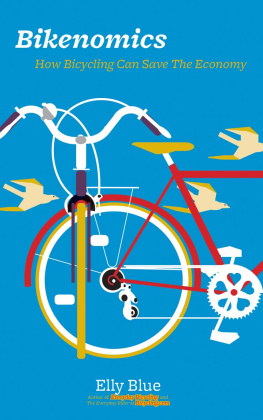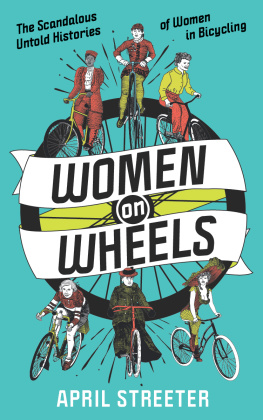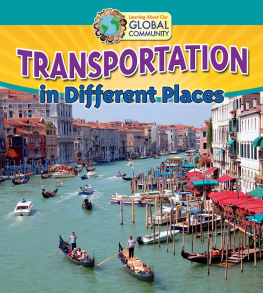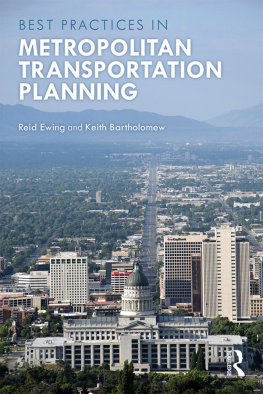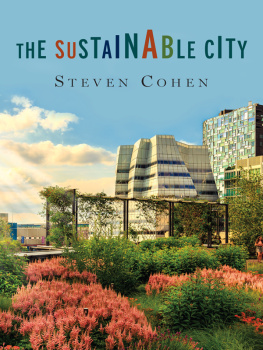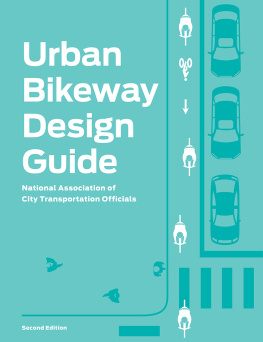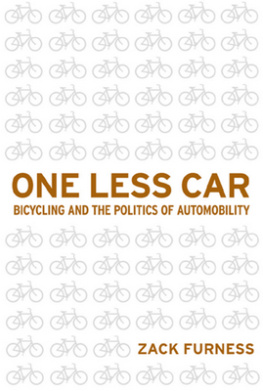636 SE 11th Ave.
Distributed by Independent Publishers Group, Chicago and Turnaround, U.K.
Printed on post-consumer paper with sustainable inks in the U.S.
Introduction
Detroit Bike & Brunch

Kimike Clark bought her bicycle half an hour before her first bike ride on a Sunday morning in August, 2012. I had no idea what was in store, she wrote later. All I knew was it seemed like fun. After listening to the pre-ride reminders about safe bicycling and road etiquette basics, she and the group took off, all seventeen adults and two babies.
At about mile two, I thought for sure I would die, Clark wrote. She fell to the back of the group and kept dropping farther and farther behind. She wondered if shed made a mistake. She decided to turn back. That was when she heard the soothing voice of Kloni Thorpe, the groups co-founder, in her ear, saying Take your time. As Clark forged on, the group stuck with her, and there was always another rider at her side with encouraging words.
And then, six miles from their starting point, they arrived at the brunch restaurant. I got off my bike and before long the other riders began to congratulate me with hugs and cheering, You made it!! That was the moment I knew my life would forever be changed.
This was no ordinary bicycle club ride, and this was no ordinary group of cyclists. Detroit Bike & Brunch had been launched earlier that year by Thorpe, an engagement specialist at a health care company, and Zoonine Bey, an artist. Every Sunday, between ten and twenty riders set off from central Detroit on a bike tour of part of the city, followed by brunch.
Its a simple and fun concept with a powerful mission. Thorpe and Bey had lived without owning cars since 2008, and the discovery of bicycling two years later opened their eyes to the city in a new way. They started Detroit Bike & Brunch in 2012 as a way to meet likeminded people who loved Detroit and wanted to see it fulfill its potential.
The idea was never to bike for the sake of bicycling; rather they see bicycling as a method to improve their citys healthand not just its physical health. Their manifesto reads:
Through biking were creating healthier Detroiters. Through our Sunday trips we support local businesses and help to stimulate Detroits economy. By traveling more withbikes, and less with exhaust emitting vehicles, we are fostering a greener environment. And by doing all this together, we are strengthening our community.
The groups marketing director, Brandi Keeler, whose day job is at an ad agency, writes of totaling her car last year and panickinguntil she realized, as she puts it, Woman, you have a bike! Living without a car was a revelation. I see more. I meet more people. Ive never been in better shape or felt more liberated in my life. With the money she saved, she could buy all the organic food she wantedshe was thrilled with the trade-off.
In the spring of 2013, I was on a tour called Dinner & Bikes. We met Thorpe and Keeler at our Detroit event and we all laughed at the convergence we had separately discoveredthat food, bicycling, and changing the world were a great combination.
It was the third year we were embarking on this month-long tour, which consisted of a vegan meal, a movie about bicycle activism, and a talk by me about the economic case for cycling. All good things, but we were less than a week in and I was tired, behind on a dozen projects, and longing to go home. The Bike & Brunch delegation radiated positivity and determination. Meeting them, I knew I had to step up my game. Whats the good of all that changing the world if youre too grumpy to enjoy the small pleasures of a meal, a bike ride, and good conversation along the way?
I asked Keeler if she could measure the groups economic impact. There are the brunches themselves, she saidthe group can fill half of a restaurant and drop over $225 before tip, adding up to a good morning in Detroits sleepy service sector. Even more valuably, they spread the word about the restaurants they visit through their robust social media presence, in ways that are beyond the ability of most of the businesses themselves. Two restaurants in particular have developed a regular following among Bike & Brunch members who discovered them on rides and brought their friends and family back later.
The group is growing and changing. In the first year, most of the riders were African Americans in their twenties; this year its been diversifying in age and ethnicity. They welcome anyone who wants to join, regardless of gender, religion, race, ethnicity, sexuality, socioeconomic status, dietary needs, health levels, and physical abilities, Keeler told me. Their only rule, besides safe and legal bicycling, is stated on their website: NO NEGATIVITY WHATSOEVER.
Regular riders abilities are changing quickly. Clark, for example, stuck with the group after her first six mile victory. Since becoming a DBB member I can proudly say I have been able to ride up to 30 miles in one trip, she wrote. Cycling isnt just a hobby anymore; its a way of life.
And she isnt the only one. Keeler told me in an email, In a very short period of time Ive seen this group transform inexperienced riders into avid cyclists. Ive seen diehard carnivores change their dietary habits. Ive seen the group elevate restaurant perceptions for skeptical vegans and vegetarians by highlighting its healthy food options. Ive seen grown women cry tears of joy after overcoming their self-doubt by trekking through a difficult Sunday ride. I like to think that these small changes, when compiled together, can create major cultural shifts in Detroit.
As these Detroiters, and many other people and communities throughout the U.S., are discovering, bicycling is good for a lot of things. A bike ride is a way to tackle, head on, the biggest problems in our personal lives, our communities, and the world. There are real barriers to bicycling in most parts of the country, like dangerous streets, long distances, weather, hills, and cultural norms. But as groups like Detroit Bike & Brunch demonstrate, these barriers can all be joyfully overcome with a little knowledge, a positive attitude, camaraderie, and community support.

